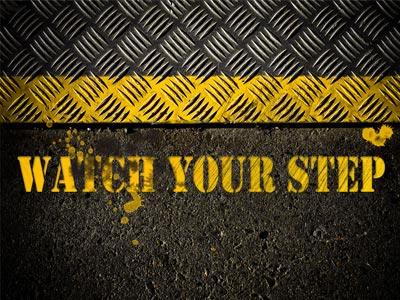-
The Parable Of The Pharisee And The Tax Collector Series
Contributed by Kerry Bauman on Nov 28, 2017 (message contributor)
Summary: The sin of self-righteousness is subtle and often undetected in our own lives, yet it often has devastating consequences.
The Parable of the Pharisee and the Tax Collector
Text: Luke 18:9-14
Introduction: A grocery store checkout clerk once wrote to advice-columnist Ann Landers to complain that she had seen people buy "luxury" food items--like birthday cakes and bags of shrimp--with their food stamps. The writer went on to say that she thought all those people on welfare who treated themselves to such non-necessities were "lazy and wasteful." A few weeks later Landers’ column was devoted entirely to people who had responded to the grocery clerk. One woman wrote: I didn’t buy a cake, but I did buy a big bag of shrimp with food stamps. So what? My husband had been working at a plant for 15 years when it was shut down. The shrimp casserole I made was for our anniversary dinner and it lasted three days. Another woman wrote: I’m the woman who bought eh $17 cake and paid for it with food stamps. I thought the checkout woman in the store would burn a hole through me with her eyes. What she didn’t know is the cake was for my little girl’s birthday. It will be her last. She has bone cancer and will probably be gone in six to eight months. Have you ever erroneously rushed to judgment about another person all the while thinking that you’ve cornered the market on righteous living? Some people would say that others who are quick to do so are seeking to justify their own behaviors. The parable we’re looking at today warns us to "beware the sin of self-righteousness." Before we get into it, may I call your attention to the fact that while this parable is talking about a Pharisee, Jesus is not limiting its application to him. Remember that the disciples were also in danger of such behavior and so were warned (See Luke 12:1-2). In fact they had already demonstrated similar attitudes in their treatment of others (See Luke 9:46-50). The sin of self-righteousness is something that anyone can struggle with. So as we look at this passage together, I ask you to resist the urge to elbow the person beside you and encourage him or her to listen. Instead ask the Lord to show you if and how this sin has found its way into your life. Now let’s make some observations about self-righteous people.
I. Self-Righteous people are often spiritual people (See Luke 18:10-12). The Bible tells us in Romans 1:18-20 that every person is aware that God exists. It goes on to tell us that every person also has a sense of the moral demands that God places upon our lives (See Romans 2: 14, 15. God’s law functions as a type of moral compass that will either accuse or defend us on the Day of Judgment. The only way we will be defended by the Law is through faith in Christ. Through perfect obedience and faith Jesus satisfied the righteous requirements of the law and brought righteousness to us (See Romans 10:4). In spite of this there are some who believe they can establish their own righteousness through spiritual piety. Consider the example of the Pharisee in this parable. He assumes he is engaged in all the right activities to bring God’s favor. He is praying and in his prayer mentions the spiritual disciplines of fasting and tithing. All three (prayer, fasting and tithing) are worthy spiritual disciplines that can help us to be more Christ-like. The sin is not found in his actions, but in his self-righteous attitude. Let’s look at another place in the Scriptures where we’ve seen the same combination with the same outcome (See Matthew 6:2, 5, 16). Application: The danger with the sin of self-righteousness is that, just like the Pharisee in this parable, we rarely ever see it in ourselves. Consider the case of Uzziah from 2 Chronicles 26. He experienced many spiritual successes at a relatively early age in life. (1) He was made king by the people of Judah at the ripe age of 16; (2) He prevailed in war against the enemies of Israel; (3) He fortified the city of Jerusalem and acquired great wealth; (4) He organized a well-trained and outfitted army -- but it was his own sense of self-righteousness that nearly led to his ruin. Uzziah entered the temple of the Lord to burn incense, an act that at first glance might seem to have been a product of his zeal for the Lord, but turned out to be an act of rebellion against the will of God (See 2 Chronicles 26:16-21). Only Aaron, his sons and their descendants were permitted to burn incense in the temple to the Lord (See Numbers 16:39, 40). It took an act of extreme courage on the part of Azariah and eighty other priests to confront the king and prevent him from doing something that would have resulted in his death. That’s the way it is with self-righteous people. Because they are engaged in spiritual activity, they seldom see the error of their ways. Beware the sin of self-righteousness! Spiritual people are not always in the will of God. Illustration: I once had a talk with a Christian woman about a behavioral issue clearly addressed in the Bible. She held a different view from me on the issue, which of course is her right, but her reason for doing so bothered me. She said, "I know it’s true because I feel it in my heart." What she saying was "If you’re heart was as pure as mine, you’d know it too." I was sorely tempted to read Jeremiah 17:9 to her.

 Sermon Central
Sermon Central



